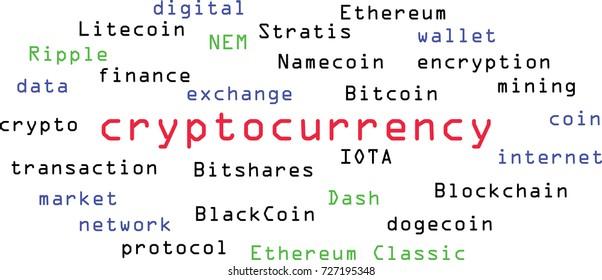Suspicious Activity Reports (SARs) related to cryptocurrency transactions in Germany have surged by 8%, signaling growing concerns over potential illicit activity in the digital asset sector. According to recent data highlighted by PYMNTS.com, the increase underscores heightened regulatory scrutiny and the challenges authorities face in monitoring crypto markets. This upward trend reflects both the expanding adoption of cryptocurrencies and the corresponding rise in efforts to detect and prevent financial crimes within the industry.
Rise in Crypto Suspicious Activity Reports Signals Growing Regulatory Concerns in Germany
Germany’s financial watchdog has reported an 8% increase in crypto-related Suspicious Activity Reports (SARs) over the past year, underscoring intensifying regulatory scrutiny in the digital asset space. This surge aligns with a broader European trend as regulators seek to clamp down on illicit activities such as money laundering, fraud, and terrorist financing facilitated through cryptocurrencies. Industry experts warn that the rise in filings reflects both heightened enforcement efforts and the growing complexity of tracking blockchain transactions.
Key factors contributing to this uptick include:
- Enhanced monitoring tools deployed by financial institutions
- Increased public awareness leading to more whistleblower reports
- Expanded regulatory frameworks requiring stricter compliance from crypto service providers
Below is a snapshot overview of SAR trends by sector in Germany:
| Sector | 2023 SARs | Change from 2022 |
|---|---|---|
| Crypto Exchanges | 1,250 | +12% |
| Payment Processors | 650 | +5% |
| Wallet Providers | 430 | +8% |
Analysis of Patterns Behind Increased Crypto-Linked Financial Irregularities
The recent uptick in crypto-related suspicious activity reports (SARs) in Germany signals a concerning trend for regulators and financial institutions alike. Analysts attribute this rise to several intertwined factors, such as the increasing sophistication of illicit actors and the widespread adoption of privacy-enhancing technologies within the cryptocurrency ecosystem. Notably, bad actors are shifting from straightforward scams to more complex schemes involving layering and mixing services which obscure transaction origins. This evolution challenges traditional compliance mechanisms and demands enhanced investigative tools.
Key elements driving the surge include:
- Expansion of Decentralized Finance (DeFi): The largely unregulated DeFi platforms offer anonymity and cross-border transaction capability, creating fertile ground for misuse.
- Use of Privacy Coins: Cryptocurrencies like Monero and Zcash complicate tracking efforts by design, making them preferred options for illicit transactions.
- Increased Transaction Volume: Growing overall crypto usage naturally generates more anomaly reports, making it harder to differentiate legitimate activity from suspicious patterns.
| Factor | Impact on SAR Increase |
|---|---|
| DeFi Platform Growth | +35% |
| Privacy Coin Usage | +25% |
| Volume of Crypto Transactions | +15% |
The recent uptick in crypto-related suspicious activity reports (SARs) in Germany signals a concerning trend for regulators and financial institutions alike. Analysts attribute this rise to several intertwined factors, such as the increasing sophistication of illicit actors and the widespread adoption of privacy-enhancing technologies within the cryptocurrency ecosystem. Notably, bad actors are shifting from straightforward scams to more complex schemes involving layering and mixing services which obscure transaction origins. This evolution challenges traditional compliance mechanisms and demands enhanced investigative tools.
Key elements driving the surge include:
- Expansion of Decentralized Finance (DeFi): The largely unregulated DeFi platforms offer anonymity and cross-border transaction capability, creating fertile ground for misuse.
- Use of Privacy Coins: Cryptocurrencies like Monero and Zcash complicate tracking efforts by design, making them preferred options for illicit transactions.
- Increased Transaction Volume: Growing overall crypto usage naturally generates more anomaly reports, making it harder to differentiate legitimate activity from suspicious patterns.
| Factor | Impact on SAR Increase |
|---|---|
| DeFi Platform Growth | +35% |
| Privacy Coin Usage | +25% |
| Volume of Crypto Transactions | +15% |
Enhanced Compliance Measures Urged for German Crypto Firms to Mitigate Risks German regulators are intensifying their call for crypto firms to bolster anti-money laundering (AML) frameworks amid a recently reported 8% surge in suspicious activity reports linked to digital assets. Authorities emphasize the necessity for enhanced transaction monitoring systems and improved due diligence protocols to better detect and prevent illicit activities within the rapidly expanding crypto ecosystem. Industry experts highlight the challenges posed by the pseudonymous nature of cryptocurrencies, urging companies to adopt cutting-edge analytics tools and collaborate closely with financial intelligence units. Key compliance priorities recommended for crypto businesses include:Measure Purpose Expected Impact Enhanced KYC Verify customer identities thoroughly Reduce onboarding of illicit actors AI Transaction Monitoring Detect suspicious patterns Faster risk response Employee Training Keep teams informed Improved compliance adherence Clear Reporting Lines Streamline suspicious activity reports Enhanced regulatory cooperation
In Summary
As Germany continues to navigate the complexities of the rapidly evolving cryptocurrency landscape, the recent 8% increase in crypto-related Suspicious Activity Reports underscores the growing challenges faced by regulators and financial institutions alike. This upward trend not only highlights heightened scrutiny but also reflects the broader global concerns surrounding illicit activities within digital asset markets. Moving forward, stakeholders will need to balance innovation with vigilance to ensure that Germany’s crypto sector remains secure and compliant in an increasingly interconnected financial environment.












![HIGHLIGHTS: Monster Energy Supersport TT Race 1 | 2025 Isle Of Man TT Races [1249cf] – An√°huac](https://europ.info/wp-content/uploads/2026/01/3039151-highlights-monster-energy-supersport-tt-race-1-2025-isle-of-man-tt-races-1249cf-anahuac-120x86.jpg)



